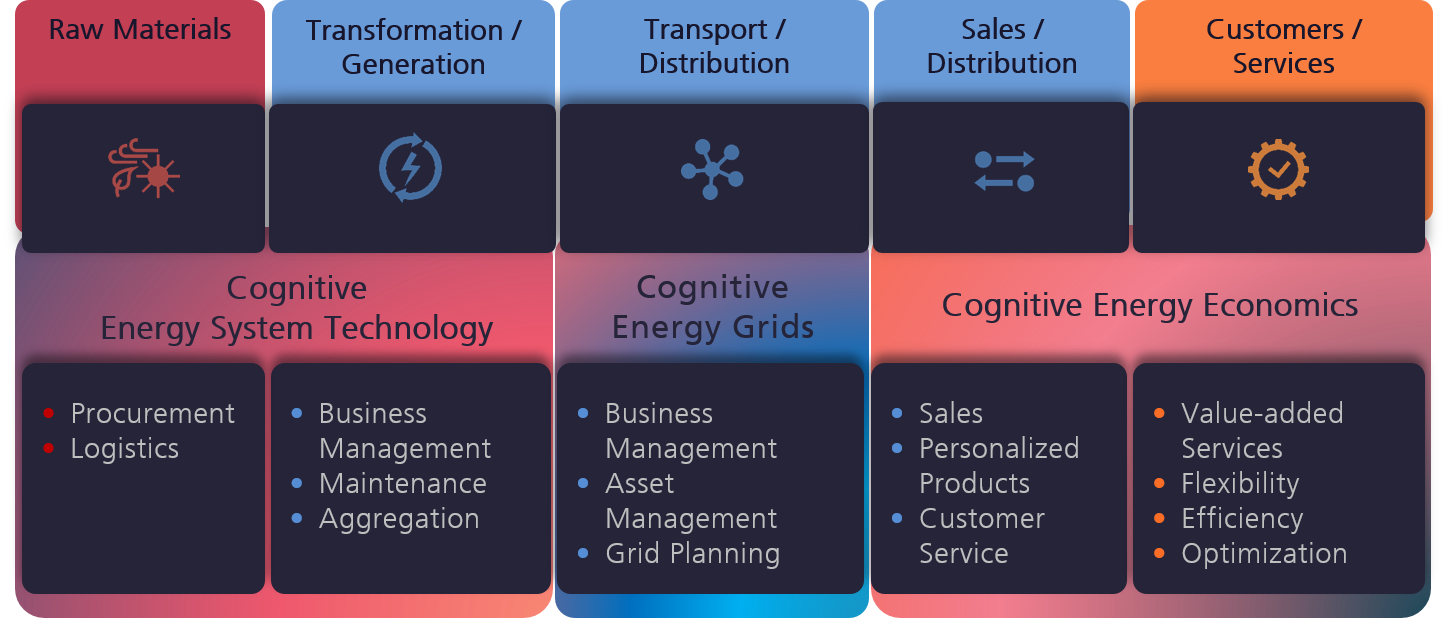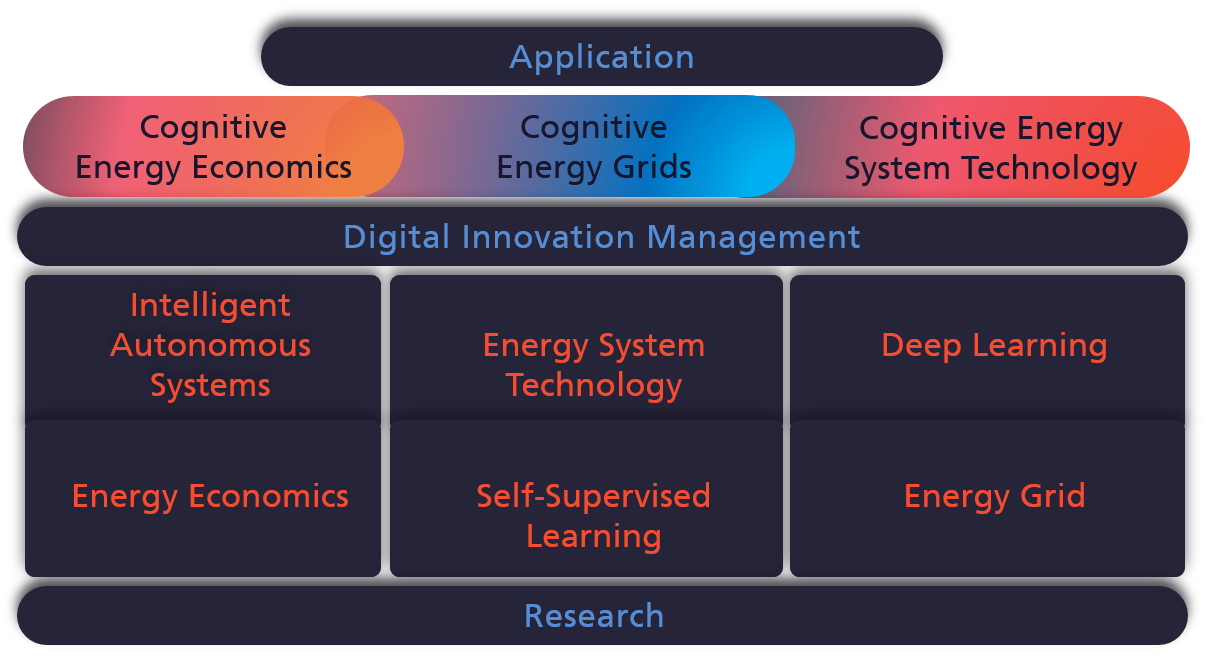Decarbonized, decentralized and digital!
Real-time processes and autonomous decisions – artificial intelligence enables the visualization of decentralized energy systems. The energy supply system generated from solar and wind works on a much smaller scale and is much more dependent upon the weather than operating conventional power stations. Furthermore, it must be possible to adapt the energy consumption to the supply in a flexible way. This requires a different kind of infrastructure.
In line with the energy turnaround, digital developments such as advanced machine learning, data science, and decision support have become applicable for the areas of energy economics, energy system technology, and power grids. Now is the time to transfer this primarily scientific approach to the economic sector.
Cognitive methods for the tasks required by the individual value-added steps or within the electricity sector come with great advantages. Furthermore, artificial intelligence even makes it possible to directly combine different sectors such as electricity and power and heat supply as well as mobility.
Within the ecosystem for cognitive energy systems, access to AI will be made easier for the various roles on the market. The tasks of plant and measuring point operators as well as those responsible for the accounting grid and direct sellers will be automated so that they can be completed autonomously. The model of the “energy avatar” (see above) illustrates how easy it is for homeowners to participate in the energy market with their solar system if all processes are automated. The energy avatar is currently being developed in cooperation with the Fraunhofer institutes IEE and IOSB-AST.

AI is already being used in the energy industry today:
Algorithms make purchasing or selling decisions in energy trading.
AI is also involved in the generation of power: The cognitive system optimizes the use of photovoltaic and wind power systems, charging stations and electrolyzers. This prevents downtime and increases the systems’ lifespan.
In the grid area, cognitive technology helps to evaluate the multitude of information and to detect and manage critical situations.
The next step is for machines to autonomously determine the state of their assets and to learn to achieve pre-specified goals for the energy industry.
In this context, the experts of the K-ES and the Fraunhofer IEE are engaged in advancing the disciplines of intelligent autonomous systems, self-supervised learning, and deep learning for energy company’s needs.
In the future, thanks to digital innovation management, every task in the areas of economics, grids and technology will be accomplished in a cognitive manner.
Cognitive energy economics
Solutions that make energy trading and sales more efficient and safer. Typical questions:
Cognitive power grids
Solutions that make the operation, maintenance and planning of electrical grids safer and more reliable. Typical questions:
Cognitive energy system technology
Solutions that make the operation, maintenance and aggregation of generating systems and large-scale consumers more efficient and sustainable. Typical questions:

